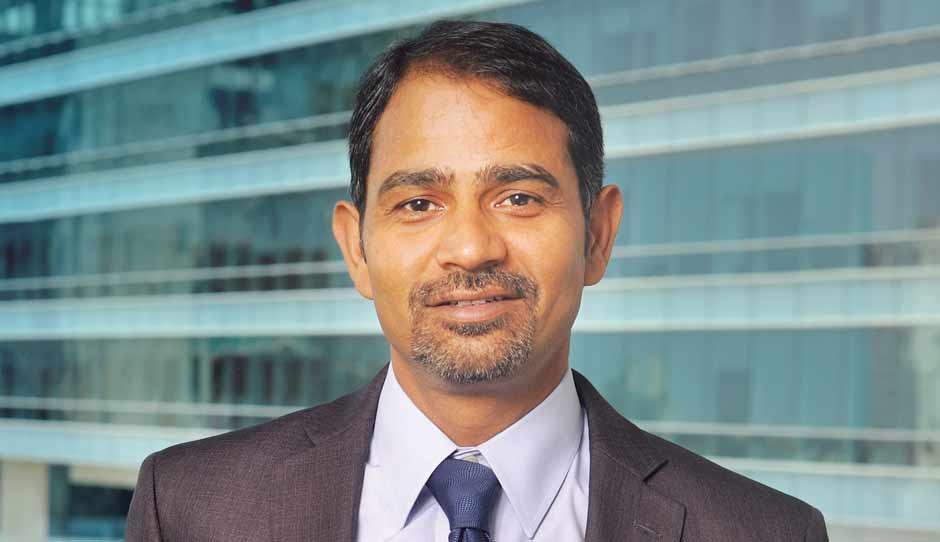The Unsung Heroes of Indian Economy: SMEs

It is the SME sector that ensured India’s resilience in turbulent global economic downturn. Today, realising its potential, the government and the private financial sector are preparing the blueprint for its growth.
The apparent thrust to small and medium enterprises (SMEs) in the General Budget tabled by Union Finance Minister Arun Jaitely in July this year was timely. It was in recognition of the SMEs’ transformative potential as a primary engine of growth. It has been well established that during the global economic downturn, it was the SME sector that kept India from buckling. While most of the large corporates reined in their investment activity to weather the storm, contrarily, the SME sector in the country expanded its investments and contribution to the GDP. India’s resilience is thus rooted in sustaining its SMEs.
The Budget rightly pointed to the financing difficulties of the SME sector and proposed a slew of measures to improve the funding environment around them. It is important that the private sector joins the government in its endeavour. Just look at the figures: India currently is home to more than 48 million SMEs that account for more than 45 per cent of the country’s industrial output, 40 per cent of total exports, employ 60 million people and create 1.3 million jobs every year. They also form the bulk in service sector. Yet, a major part of their potential to rev up the economy remains untapped. The GDP contribution of India’s SMEs is 17 per cent, which in major developed economies is 51 per cent. Again, while the SME sector in developed countries employs 66 per cent of the workforce, in India it is not even 50 per cent.
In the new paradigm, where India seeks to become a digitally empowered knowledge economy, the role of SMEs becomes even more pertinent. If India is to achieve its vision of zero imports in electronics manufacturing or in fact the vision of Digital India, we cannot afford to ignore the SMEs. In Make in India, another of the recently launched flagship programmes of Prime Minister Narendra Modi, SMEs will again function as a critical cog in the wheel. In fact, the future of the nation depends on the SMEs as they impact a large population at the base of the pyramid.
It is hence timely that the government has decided to work on the SME financial architecture.
In order to create a conducive venture capital ecosystem for the MSME sector, the government has proposed setting up a Rs 10,000 crore fund. The fund would act as a catalyst to attract private capital by way of equity, quasi equity, soft loans and other risk capital for SME startups. The role of large corporate becomes important here to support the SME bulwark of the nation. It can help turbo-charge the SME sector and as a corollary spur the nation’s growth. Propping up SMEs is very important for the sustainability of the core industries. It is imperative that India’s large corporates come forward to partner with SMEs in mutually beneficial collaborations. As the government pushes forth the SME growth agenda with technology, innovation and quality support to the sector, banks too must join hands with private players to support the plan. The role of banks and financial institutions in reviving the sluggish manufacturing sector is crucial and it calls for lending to the MSME sector.
The key challenge faced by SMEs pertains to the dearth of easy finance. More than 59 per cent SMEs in India do not have access to formalised lending against 20 per cent in developed countries. The main issue relates to the complex collateral requirement for term loans which SMEs find difficult to submit. The second grouse relates to the procedural delays in disbursement and the complex and cumbersome process surrounding it. The absence of a standard project appraisal system further compounds the problem. They also find it difficult to obtain PE funding and most often are discouraged from availing it given the high cost of financing and the fear that PE funding will dilute their control in their own company.
It is heartening to note that recently private sector banks have been realising that the SME sector is crucial to drive their own business growth. The slowdown in corporate loan disbursement and the reluctance of big corporates to borrow has led the banks to bet big on the SME sector. The other and more pertinent reason is the improving quality of SME loan book as lenders adopt strict credit appraisal process in a quicksilver economic environment. There is a positive momentum building up in SME financing with leading Indian and foreign banks focussing on the SME sector
Driving SME Finance for Disruptive Growth
Rakesh Singh, CEO, Aditya Birla Finance Limited, on why his Company (ABFL) is betting big on SMEs
Q: There seems to be renewed interest in Indian SMEs. What do you think is driving this?
Rakesh Singh: In India, GDP growth hovers around 5–6 %. To achieve the desired growth, India must grow its manufacturing sector. India is the 10th largest importer in the world and current account deficit is a key problem for the country. To increase the growth rate, India must support its SMEs to set up manufacturing units and increase their capacity utilisation. The current government has realised this opportunity and has launched Make in India, a focused agenda which will unleash its true potential.
Q. What are the financing options available to SMEs in India?
Rakesh Singh: Formal lending has evolved over the years to provide many financing options for SMEs. From traditional routes of working capital/term loan financing available from banks and NBFCs, to asset-light methods of bill discounting and to other forms of financing spanning across debt and equity asset classes. New-age options are evolving such as peer to peer financing, venture debt options, specific end use variants such as IPR backed Loan, Franchisee Financing, Auction Finance among others.
Q. How do Banks compare to NBFCs from a customer’s perspective?
Rakesh Singh: Both institutions have their own space. Given the expanding SME growth story, I am confident that there is more room for both sets. Banks are more competitive with respect to pricing given their access to low cost resources while NBFCs continue to be far more accessible both through reach and through customized solutions. Customers need a balance of both propositions and these will remain complementary.
Q. But how do lending institutions tackle the lack of hard collateral available with most early stage/service based SMEs?
Rakesh Singh: There are multiple options available to customers today based on their needs. For term loans, institutions look at the net present value of future cash flow receivables and other estimated income creating sources. For working capital requirements, there are significant supply chain financing options available both on the channel and vendor side. What is important is that the customer is able to demonstrate a robust business model and preferably strong repayment tracks and vintage where possible. For early start-ups, venture debt and equity are available once again based on their business model.
Q. What makes you so confident of the SME landscape in India?
Rakesh Singh: India has approximately 48 million SMEs and more than 60% of them do not have access to formal lending. With SMEs’ growing contribution to GDP and unbanked SMEs getting access to formal lending, there is enough credit opportunity available. SMEs must play a decisive role in India’s next phase of growth.
Q. ABFL has had an impressive growth story with its ability to keep its non-performing assets low. What is your formula?
Rakesh Singh: A strong product proposition for SMEs has been our focus agenda. We have been associated with financing clients across various asset classes for over two decades and given our rich group parentage, have considerable experience across the manufacturing and services sector. We have a relationship manager based servicing model to understand customer needs and offer customized solutions and hassle-free financing.





 In
In  11237
11237
























Add new comment